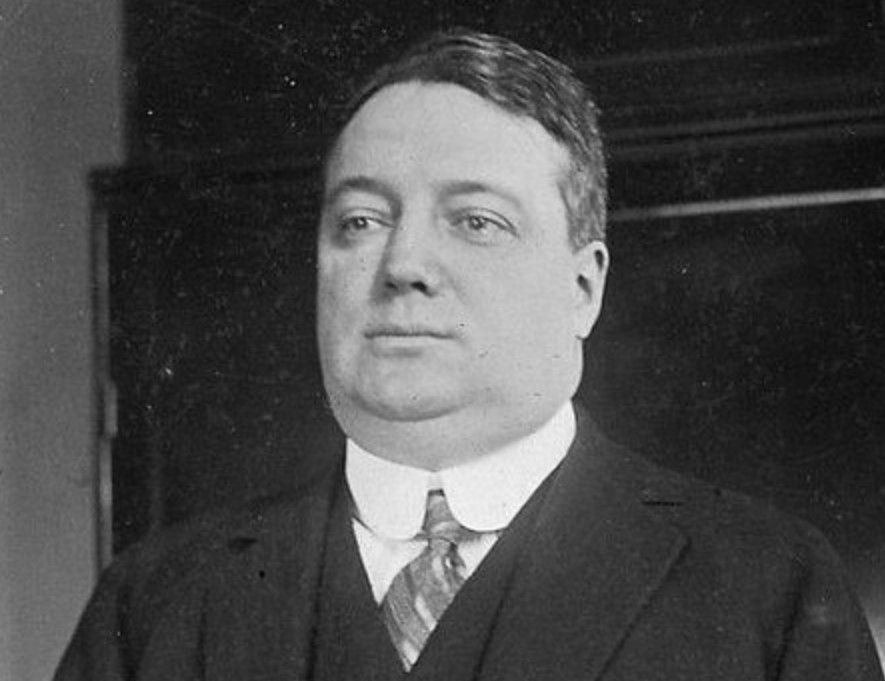
Charles A. Stoneham
Childhood
Charles Abraham Stoneham was born on July 5, 1876. While detailed information about his early years is limited, his later business acumen suggests he received sufficient education to navigate the complex world of finance and professional sports ownership.
Career
Stoneham began his professional journey as a board boy in a New York City brokerage office, where he updated stock transactions. Demonstrating natural talent and ambition, he quickly ascended through the ranks, eventually becoming a stock salesman within the company.
In 1913, leveraging his experience and connections, Stoneham established his brokerage firm, Charles A. Stoneham & Company. Four years later, in 1917, he expanded his business portfolio by purchasing the Sierra Nevada mine in Jefferson, Nevada.
Stoneham's brokerage career turned controversial in 1921 when he dissolved his company, persuading investors to transfer their accounts to other New York brokerage firms. This decision proved fateful when one of these firms, E.M. Fuller & Company, collapsed in July 1922, implicating Stoneham in the subsequent bankruptcy case.
Allegations surfaced that Stoneham was a silent partner in Fuller's firm and had provided false testimony during the collapse investigation. These accusations culminated in his indictment on August 31, 1923, by a Federal grand jury for perjury. The scandal deepened when another brokerage firm, E.D. Dier & Company, failed, leading to additional indictments for mail fraud related to client deception in September 1923. Despite ultimately being acquitted of these charges on February 6, 1925, the shadow of these scandals followed Stoneham throughout his life.
Gambling Operations
Stoneham was both an avid gambler and a gambling business operator. His gambling enterprises included the prestigious Oriental Park Racetrack and Havana Casino in Cuba. These operations were significant in the gambling landscape until 1923, when he was compelled to sell them as part of an anti-corruption campaign initiated by baseball commissioner Kenesaw Mountain Landis. Nevertheless, Stoneham continued to operate a Thoroughbred racing stable based in New York for several years afterward.
Stoneham maintained close business relationships with notable figures in the gambling world, including organized crime boss Arnold Rothstein, who was infamous for fixing the 1919 World Series. Rothstein facilitated Stoneham's acquisition of the New York Giants baseball team in 1919 and co-owned a billiard parlor with Stoneham's right-hand man, Giants manager John McGraw.
Personal life
Limited information exists about Stoneham's personal life beyond his business and sporting interests. He had at least one son, Horace Stoneham, who would inherit the New York Giants baseball team after his father's death.
Revenue
While specific financial details are not well-documented, Stoneham's diverse business portfolio—including brokerage operations, mining interests, gambling establishments, and professional sports teams—suggests he commanded considerable wealth during his lifetime. The purchase of the New York Giants baseball team alone for $1 million in 1919 (equivalent to approximately $16 million in today's currency) indicates substantial financial resources.
Interesting facts
Stoneham was known for his close association with Arnold Rothstein, the notorious crime boss who orchestrated the 1919 World Series fixing scandal.
He owned both the New York Giants baseball team and the New York Nationals soccer team simultaneously.
Despite his legal troubles and associations with gambling, Stoneham saw the Giants win three World Series championships during his ownership.
His decision to evict the Yankees from the Polo Grounds indirectly led to the construction of Yankee Stadium.
Stoneham played a pivotal role in the "Soccer Wars," which ultimately contributed to the decline of professional soccer in the United States.
Legacy
Charles A. Stoneham's legacy is complex and multifaceted. While he achieved significant success as a sports team owner, particularly with the New York Giants baseball team winning three World Series during his tenure, his reputation was marred by numerous controversies and legal issues.
In baseball history, Stoneham is remembered as the owner who passed the Giants franchise to his son Horace, who would later move the team to San Francisco in 1958, forever changing the landscape of Major League Baseball.
In soccer history, Stoneham's actions during the "Soccer Wars" contributed to the decline of what had been the second most popular professional sport in America. This interruption in soccer's development in the United States potentially delayed the sport's growth for decades.
Despite these controversies, Stoneham's impact on American sports ownership and gambling operations remains significant, bridging the worlds of finance, gambling, and professional sports in ways that prefigured the more formalized relationships between these sectors today.
Frequently asked Questions
Charles Stoneham was both an avid gambler and the owner of significant gambling operations, including the Oriental Park Racetrack and Havana Casino in Cuba. He maintained close business relationships with figures in the gambling world, most notably Arnold Rothstein, who was known for fixing the 1919 World Series. Stoneham's gambling establishments were prominent until 1923, when he was forced to sell them as part of an anti-corruption campaign in baseball.
Stoneham purchased the New York Giants baseball team in 1919 for $1 million, with Arnold Rothstein brokering the transaction. He brought on longtime manager John McGraw and New York municipal judge Francis Xavier McQuade as partners, with McGraw becoming vice president and McQuade serving as treasurer.
The "Soccer Wars" was a conflict between the American Soccer League (ASL) and the United States Football Association (USFA) that ultimately led to the decline of professional soccer in America. As vice president of the ASL and owner of the New York Nationals, Stoneham instigated a boycott of the National Challenge Cup due to the high costs associated with the competition. When three teams defied the league and participated, they were expelled, leading the USFA to declare the ASL an "outlaw league" and create a competing league. The financial toll from this conflict, coupled with the Great Depression, fatally weakened the ASL.
Yes, Stoneham faced several legal challenges throughout his career. He was indicted for perjury in 1923 related to his testimony in the E.M. Fuller & Company bankruptcy case. He was also indicted for mail fraud regarding the collapse of E.D. Dier & Company. While he was acquitted of most charges by 1925, these scandals continued to affect his reputation throughout his life.
Stoneham suffered from various health issues in his later years, eventually diagnosed with symptoms of Bright's disease (a historical term for kidney disease). He died on January 6, 1936, in a hotel in Hot Springs, Arkansas, after spending several days in a coma. His son Horace was at his bedside when he passed away.











